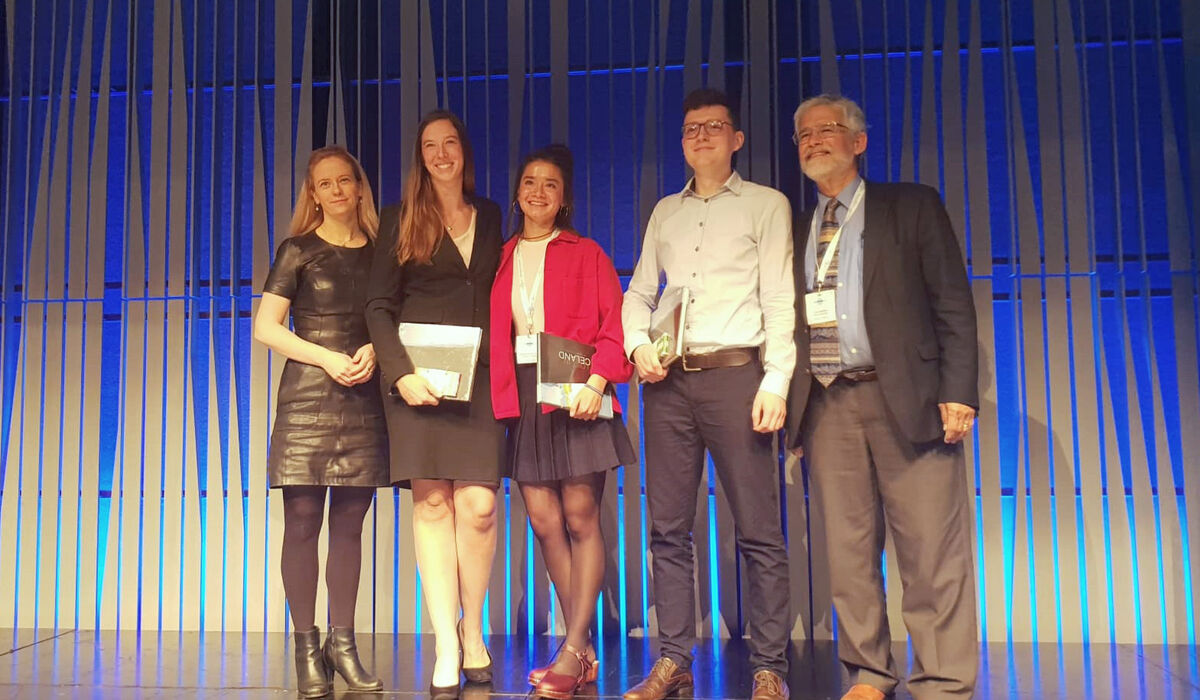Arctic Circle Conference 2018
Two ISE students compete in the Arctic Innovation Lab
The Arctic Circle has been gathering annually since 2013. This conference brings policymakers, academics and business people together. Over 2000 people from over 60 countries came together to discuss the challenges that the Arctic is facing as well as the solutions being implemented. This took on many forms, including plenary sessions, breakout sessions, and roundtable discussions.
One breakout session The Arctic Innovation Lab: 15 ideas for a better Arctic, was organized by the Harvard Kennedy School of Government and featured two Iceland School of Energy students: Sydney Le Cras and Renata Bade Barajas.

Sydney Le Cras spoke about reducing industrial pollution’s effects in arctic community diets while simultaneously reducing dependence on outside sources. Due to high levels of toxins, traditional foods are being replaced with processed western food, this is resulting in poor health, diabetes, and obesity. Their arctic conditions won’t allow for the exclusive use of greenhouses. Sydney instead proposes a hybrid system of anaerobic digesters and indoor permaculture farm systems. Anaerobic digestion breaks down organic weight, turning it into heat and fertilizer and can even generate electricity. When used together, her solution can promote health and food security in the Arctic.
Renata spoke of the use of wind energy as power reserves in arctic communities. She argues that as communities in the Arctic are remote and subject to harsh weather conditions, their sole dependence on diesel leaves them vulnerable to fuel price changes and weather’s effect on ice road stability and availability of sea-way openings. Instead, she proposed taking advantage of the Arctic’s extreme climate and use wind energy as reserve power.
The Arctic Innovation Lab featured 15 pitches in total. Participants were made up of students from the Harvard Kennedy School, The Fletcher School at Tufts, Iceland School of Energy at the University of Reykjavik, the University of Iceland and the University of Greenland. Sydney Le Cras came in second place for her pitch about anaerobic digestors and permaculture!
Congratulations on a great job!
